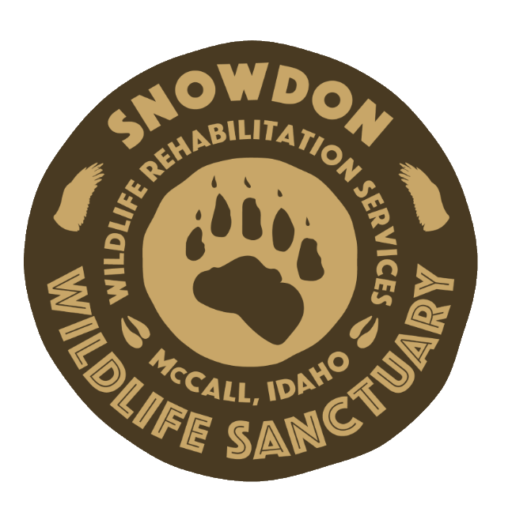Here are Some Frequently Asked Questions:
Do you keep any of the animals you rescue?
Wildlife rehabilitation aims to treat and care for orphaned, sick, and injured animals so they can be released back into the wild. Occasionally, we will receive an animal with an injury that makes it unable to survive in the wild but has a calm disposition in captivity. In these rare cases, we will assess the animal’s quality of life and determine if it would thrive as an ambassador animal. Our education program will only keep raptors as education animals, but we will also transfer animals to other nonprofit AZA-accredited associations. These animals help advocate for local wildlife and teach community members to be better environmental stewards.
How can I volunteer?
We recognize that everyone has a different skill set, so we are happy to find the perfect position for you! Volunteers are welcome to assist with animal care, outreach programs, transportation, and facility maintenance. If you are interested in being trained as an animal care volunteer, we ask that you commit to morning or evening feeding (1-2 hours) once a week or every other week. We have very few full-time staff members, so we rely heavily on volunteers to execute our mission.
Learn More About Volunteer Opportunities!
What kinds of items can I donate?
The next time you clean out your freezer, think of us! We accept unprocessed meat donations, including game meat, beef, chicken, and turkey. We also always need cleaning supplies, blankets, towels, and stuffed animals. If you have items you wish to donate, call us at (208)634-8050 to arrange a pickup!
Check out our amazon wishlist to see what else we need!
Where do you release the animals you rehabilitate?
If possible, we will return an animal to where the rescuer found it. Most adult animals have an established territory and a mate waiting for them on release day. If the animal was orphaned at a young age due to a human-wildlife conflict, our rehabbers find a safer area nearby. We take care to release animals into the proper habitat that fulfills the animal’s primary food, water, and shelter needs.
Can I see the animals in your care?
Because our patients are healing from injuries and will be released back into the wild, they are not publicly displayed. Our staff works hard to limit contact and disturbance to decrease stress and keep the animals unhabituated to human presence. However, the sanctuary is open to the public one day a year in September! This event allows our community to tour the facilities where we care for injured and orphaned wildlife. In addition, if you watch our social media, you can have the opportunity to meet one of our ambassador raptors during an off-site program! We average one presentation every other week throughout the year at locations like schools, parks, fundraisers, and education centers. Our staff and ambassadors can’t wait to meet you!
I found an injured/orphaned animal. Can I keep it?
It is illegal to keep wild animals of any kind. However, if you see an animal that appears injured or orphaned, you can call your local wildlife rehabilitation center or state wildlife department to learn if you should interfere. These organizations have the resources to properly asses the animal’s needs and provide them with the care they require.
Find a wildlife rehabber near you: https://ahnow.org/
How is Snowdon funded?
Snowdon Wildlife sanctuary is a 501(c)3 nonprofit funded entirely by grants and private donations. Every year, we write grants to acquire income for specific projects like expanding our education programs and improving our facilities. A significant portion of our funding comes from local businesses and community members in Valley County who donate their money, time, and resources to help us! We want to extend a huge thank you to all our donors, big and small! Snowdon could not function as a wildlife rehab and education center without your generosity.
What areas do you serve?
The majority of our animals come from Valley County and the surrounding areas. Because we are one of the very few certified rehab centers in Idaho, we will accept animals from anywhere in the state when necessary. Depending on your location and the number of animals in our care, we might redirect you to a rehab center nearer you. Please understand that we have limited resources and will always keep the animal’s best interest in mind. Due to permit restrictions, we can not accept animals from over state lines.
Can you pick up the animal I found?
Yes! We are a small organization with limited staff, time, and resources, but we are happy to coordinate the safest and most efficient transport possible. If the person is comfortable capturing the animal, we might suggest meeting you halfway. We will travel up to 3 hours in any direction to receive an animal. Donations for gas are always appreciated!
How can I help wildlife?
Human-wildlife conflicts injure the majority of the animals that come into our center. One common conflict that you can help us avoid is window strikes! Applying WindowAlert UV liquid, plastic window clings, outdoor screens, or keeping bird feeders at least 5 feet from your windows can save birds from often deadly collisions. Another simple way to help wildlife is to turn your lights off at night! Light pollution can draw birds off course during migration, delaying their progress and increasing their chances of fatality during the journey. Other ways to help our four-legged friends include:
- Avoiding the use of rodenticides.
- Properly disposing of litter.
- Using a bear-proof trash can.
- Allowing wild animals to find food on their own.
Small changes can make a big difference for the critters with which we share our backyard!

